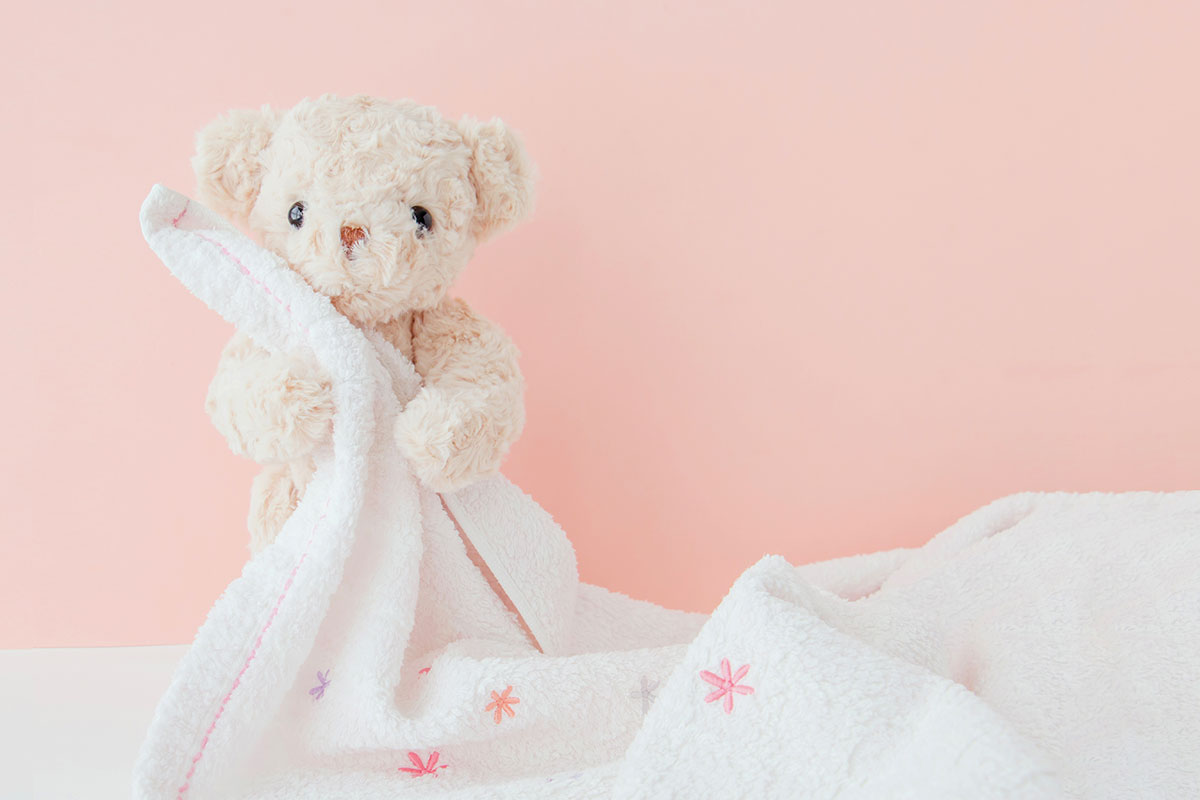
Does your child have a favorite stuffed animal, plush toy, or other toy that's difficult to separate? These toys are often exposed to dirt and stains, and as parents, we need to find ways to clean them and keep them in good condition. In this article, we'll learn how to wash stuffed animals, plush toys, or other children's toys to keep them looking like new.
How to wash a stuffed animal, plush toy or other children's toys - steps to follow
Prepare the toy
First and foremost, before washing stuffed animals, prepare the toys for washing . If the toy has decorative elements such as beads, sequins, or embroidery, make sure they are securely attached to the fabric. Otherwise, they may come loose during washing, ruining the toy's overall appearance. It's also a good idea to wash toys separately, without clothing or additional accessories like shoes, to avoid mixing colors and damaging the fabric.
If the toy has loose filling, make sure there are no holes or tears through which the contents will leak out during washing.
How to wash stuffed animals - choose the right detergent
Choose the right detergent for washing toys. Remember that toys will come into contact with your child's skin after washing, so if your little one has sensitive skin, choose a gentle detergent that won't irritate it.
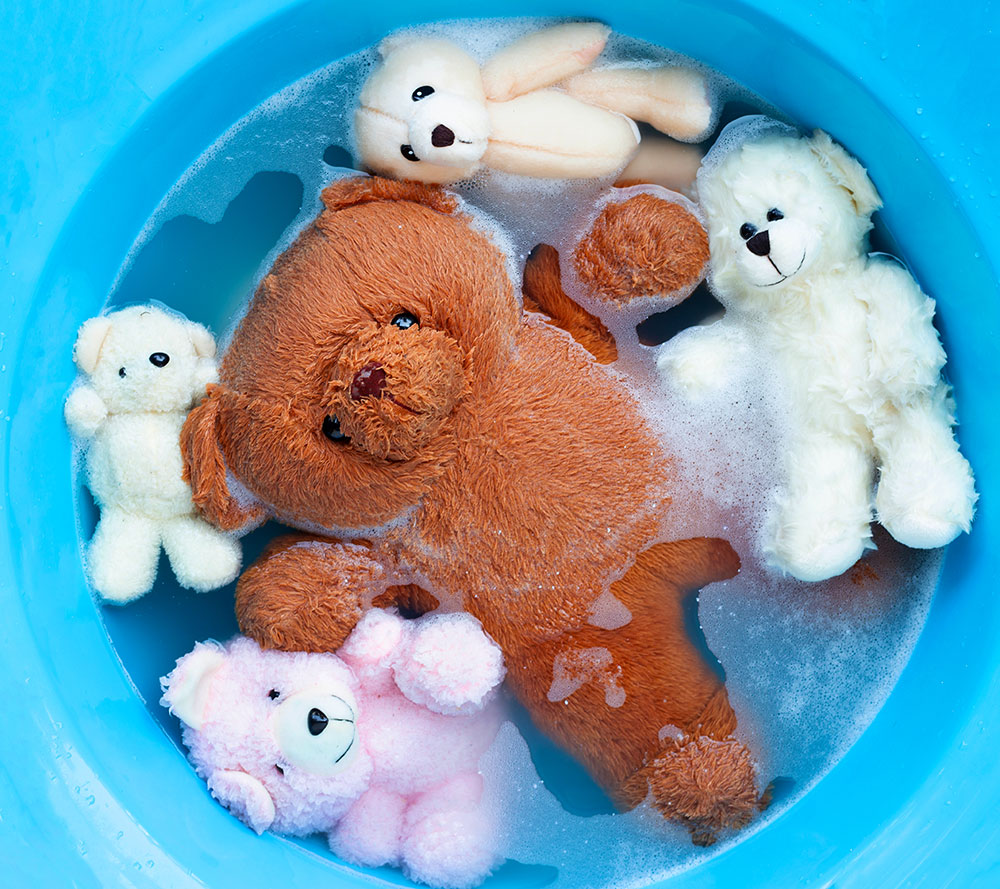
How to wash a stuffed animal in the washing machine?
If the toy is not too large, it can be washed in the washing machine . It's best to choose a hand wash or delicates cycle to avoid damaging the filling. Before washing, you can place the toy in a laundry bag or seal it in a pillowcase . If you're unsure whether the toy is too delicate for the washing machine, hand washing is better.
For stuffed animals and other soft toys, it's best to use a gentle wash cycle or hand wash. Washing stuffed animals at too high a temperature can damage the fabric and cause the toy to lose its original shape .
How to wash a plush toy by hand?
If the toy is too large or too delicate to be washed in the washing machine, it can be washed by hand. To do this, fill a sink or large bowl with lukewarm water and add detergent. Soak the toy in the water, then gently massage the detergent into the stains and knead it gently. The next step is to rinse the toy of the detergent. This can be done in the same way as you washed it, but this time in a bowl of clean water.
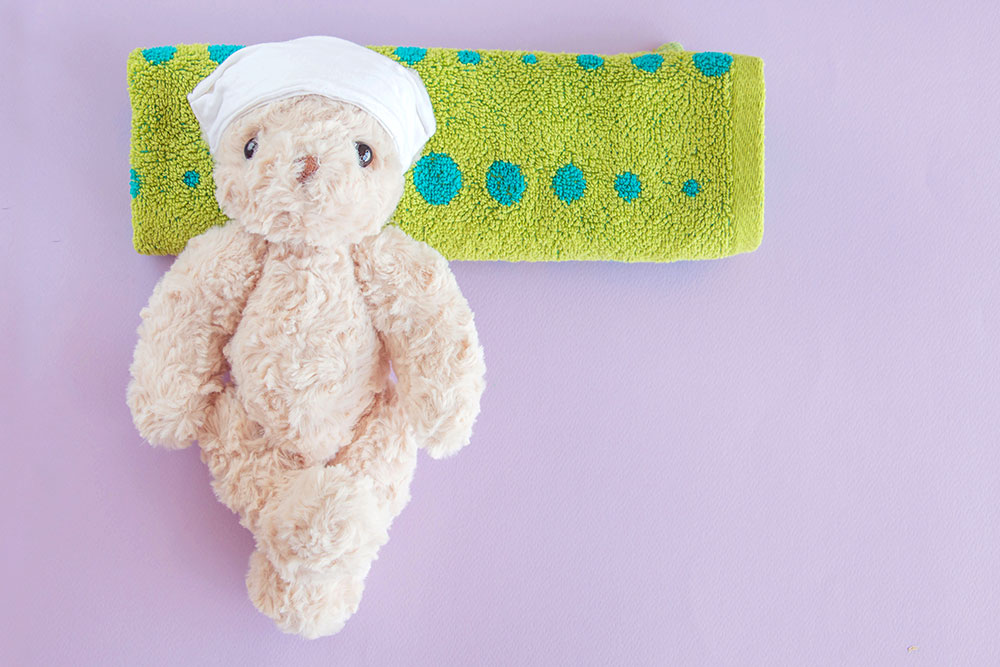
Drying the toy
After washing, dry the toy thoroughly . Do not tumble dry it, as high temperatures can deform the toy. Instead, hang it on a drying rack or lay it flat on a towel and allow it to dry completely. First, gently squeeze out excess water from the plush toy, being careful not to distort its shape. Place the drained toy on a drying rack to dry. If the toy is large, it's a good idea to leave it to dry with a radiator on to speed up drying.
If the fur is a bit ruffled after drying the stuffed animal, gently brush it with a doll or baby brush.
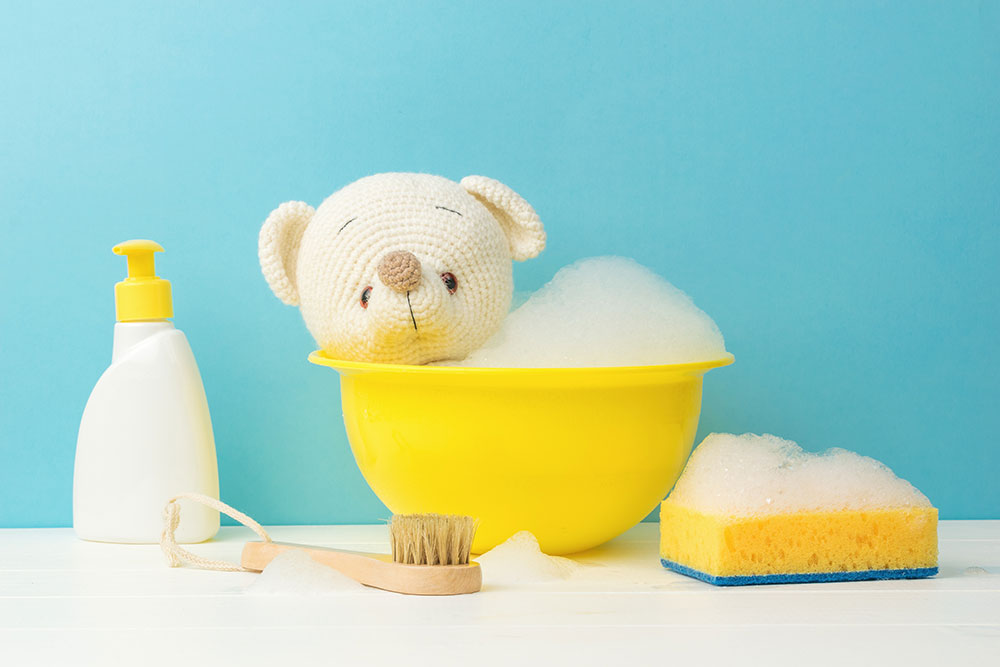
The most common mistakes when washing stuffed animals and plush toys
Improperly washing stuffed animals and plush toys can lead to their shape being distorted or their fabric being damaged , meaning they won't be as soft and fluffy. Here are a few mistakes to avoid when washing stuffed animals and plush toys:
High temperature washing
Plush toys and soft toys should be washed at a low temperature, usually 30-40 degrees Celsius . Washing at high temperatures can cause the fabric to shrink, which in turn can distort the shape of the plush toy or soft toy.
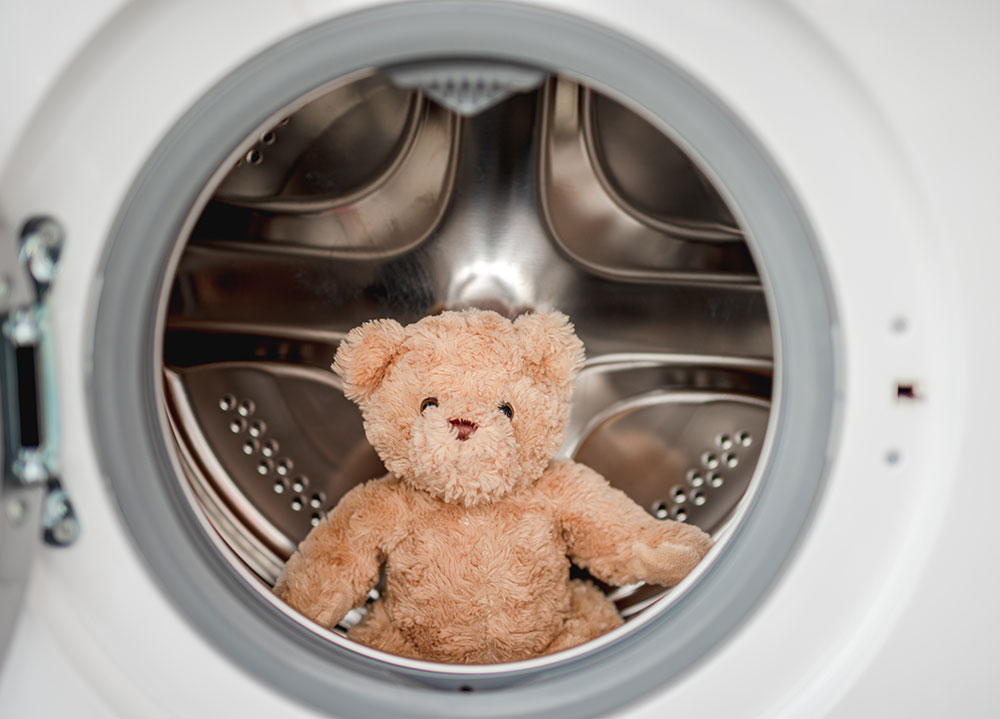
Too intense spinning
High-speed spins can deform stuffed animals and other toys, causing them to lose their shape . It is recommended to use a gentle spin cycle or avoid spinning altogether.
Use of strong chemicals
Harsh chemicals like bleach, solvents, or carpet cleaners can damage the fabric of your stuffed animal or plush toy and distort its shape. We recommend using mild detergents and cleaners designed for delicate fabrics .
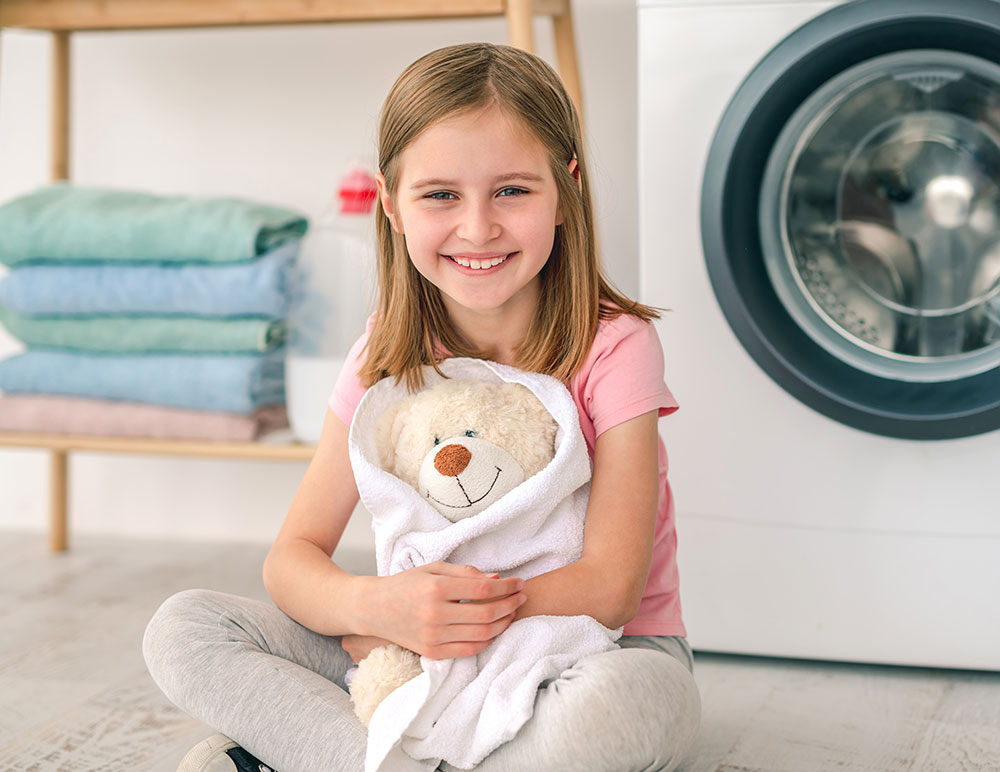
Washing clothes with zippers, Velcro, or clasps
Sharp objects, such as zippers or clasps, can damage the fabric of a stuffed animal or plush toy. It's recommended to wash stuffed animals and plush toy separately or with other similar fabrics.
Tumble drying
Tumble drying can distort the shape of the stuffed animal or plush toy and damage the fur, meaning it won't be as soft and fluffy. It's recommended to dry it flat or hang it on a line.
Washing children's toys requires a little more care and gentleness than washing regular clothes. It's important to use appropriate cleaning products, choose gentle wash cycles, and take care of decorative elements. This will ensure that children's toys retain their original appearance and last for a long time.


Podziel się:
Yarn Bunny - A Simple DIY Easter Project for Kids
Easter game for children - Egg hunting